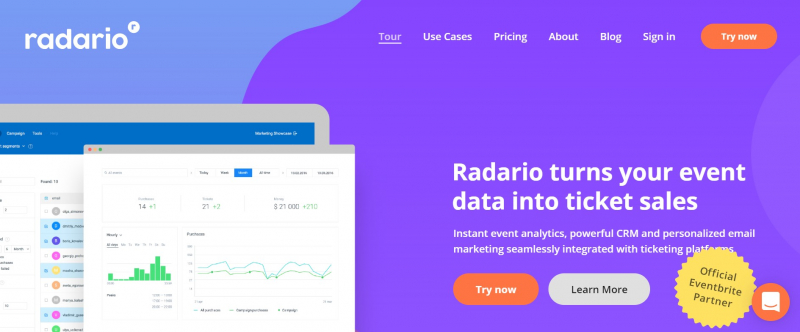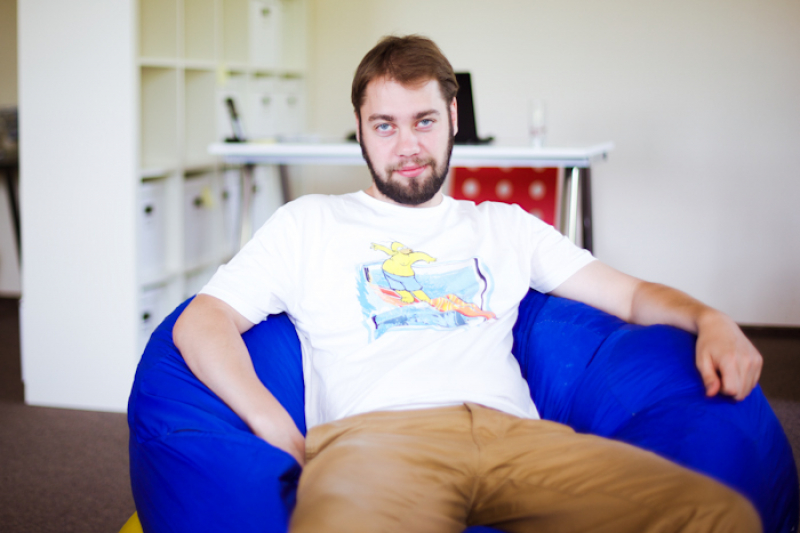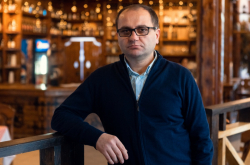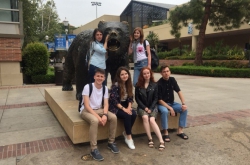Please tell us about your studies at ITMO University. Did the knowledge you’d gotten come in handy in your career? Why did you decide to leave before graduation?
Let me put it this way: fundamental and engineering sciences, undoubtedly, help form the right mindset for task-solving and give you a handle on a subject area. So some of the knowledge certainly did come in handy. But I can’t gauge the exact level of usefulness.
I started actively working from my second year at university, and it was approximately at that time that I first attempted to start my own business. Time was of the essence, and I decided to quit my studies.
Could you recount that first attempt? What was this project like, who were you working with?
This was a micro-outsourcing company I was developing with my former colleagues – friends and acquaintances, one of which also studied at ITMO. Together, we created several projects for our Swedish clients. This was followed by more projects: we attempted to launch a platform for business automation, as well as a task tracker – there were a lot of things. But these projects didn’t grow into startups and businesses, some didn’t even launch properly. Nevertheless, they earned us a lot of valuable experience.

Why, do you think, out of all your projects it was Radario that became successful? Was it a result of accumulated experience and mistakes overcome? Or was it thanks to a successful analysis of the market and its needs?
When we only just launched in 2012, it was more so because we saw an opportunity for it. Later, this opportunity developed into a more in-depth understanding of problems and needs. Experience definitely helps, and a lot at that, but it’s mostly useful at the stages you’d already completed before. Very often, business is an equation with many unknowns, a journey you haven’t yet been on, it requires you to solve tasks you haven’t encountered before. That’s what makes the combination of analysis, task-solving and soft skills and intuition so important.
What, in your opinion, are the key knowledge and competencies needed to launch a successful project? What’s more important – tech and programming skills and experience in IT, or soft skills like management, team leading etc? Or do you have to be a renaissance human capable of everything – from drawing up a business plan to creating a website?
What’s most important is the ability to assemble an amazing team. There is safety in numbers.
If we’re talking about the role of a founder, a leader, a CEO, this calls for systemic thinking, the ability to formulate goals and tasks clearly and to be a good judge of character, and soft skills. Specific technical skills are needed to have a general understanding of what’s happening, but you can’t build a business solely on their basis.

What criteria do you use when hiring people – do you prioritize practical skills and experience or a candidate’s personal qualities such as an ability to think outside of the box, quick-wittedness and others?
Professional competencies and skills are necessary but not enough. If candidates are on a similar level skillswise, I’d opt for the one who is quick-witted and capable of thinking unconventionally.
Returning to the topic of higher education, what would you say it lacks? You’re likely to encounter a lot of young specialists and graduates. What would you add to the curriculum, what would you remove from it?
It’s hard to say, it’s been a long time since I interviewed a young specialist. From what I remember, they used to lack the experience of working in a team, as well as applied skills. I think that the university curriculum is overloaded with subjects that are odd for a software engineer to study, such as electronics and the like, not to mention things like sports – sports are great and all, but what does it have to do with an academic curriculum? It would be great to give students some experience of working as part of real-life projects with real-life architecture, procedures like CI/CD and other practices, even in a learning mode.
What would be your advice to current students based on your experience?
I’d recommend expanding your professional and personal horizons, whichever way possible.





